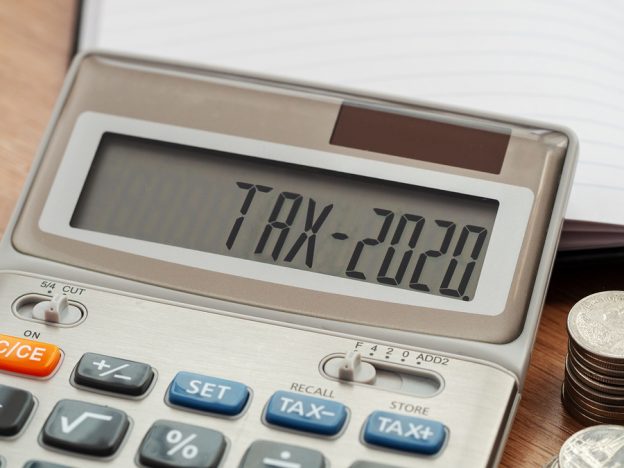
Recently the Prime Minister refused to rule out raising VAT, National Insurance Contributions (NICs) and income tax as a way to pay our £300 billion COIVD-19 bill.
But how much would this harm faith in the government and our economic recovery?
Why would this harm confidence in the government?
The Conservative Party Manifesto that led to their victory in the last election included the pledge to not increase income tax, NICs or VAT. This simple and substantial promise was a much publicised part of their campaign. Such a reassurance was understandably popular with a high proportion of their supporters. After all, these are personal taxes that directly affect the financial capacity of us all.
To go back on these manifesto commitments may irrevocably shake public confidence in the government.
What has Prime Minister Johnson said so far?
Prime Minister Johnson was questioned by Mel Stride, the Chair of the Treasury Select Committee, during a recent Liaison Committee meeting. She specifically asked about the issues in the Conservative Manifesto.
In response the Prime Minister said: “You’re going to have to wait until Rishi Sunak brings forward his various proposals. I would share your instincts Mel to try and keep taxes as low as we conceivably can consistent with our desire to invest in our fantastic public services but I don’t want to anticipate now what we are going to do now on our economic package.
When you were doing your job so fantastically as you did in the Treasury, I don’t think you would have made that kind of fiscal commitments in this kind of committee but you know where my instincts lie.”
He recommitted to their other pledges about planned hospital building and increasing the number of nursing staff and police officers. Significantly, he did not rule out increases to those three main personal taxes. How loyal Conservative voters feel about this remains to be seen.
Chancellor Rishi Sunak has not yet announced the details of their plans.
How would tax increases impact economic recovery?
Many feel that tax increases will hamper the recovery of our beleaguered economy. Fiscal forecasts are not brimming with positivity, with the words ‘global recession’ being all the more frequently used to talk about our post-pandemic situation.
Raising taxes seems like a reliable, controlled way to get some money back into the Treasury coffers quickly. It seems like an obvious part of the solution. But many people feel that raising VAT, income tax and NICs will really hinder our economic recovery.
Chief Executive of the TaxPayers’ Alliance, John O’Connell, said “The government has a tough job on its hands in repairing the public finances, but increasing a 50-year high tax burden should not be a part of the plan. The government’s help so far has been a lifeline for millions of families and thousands of small businesses, but taxpayers must also be protected in the recovery. There must be a relentless focus on economic growth, and that should mean a strategic plan for tax cuts and simplification.”
At the simplest of levels, if you’re taxed more, you’ve less money to spend. When people spend less, the overall economy slows down.
Will Brexit arrangements be affected by raising taxes?
Rather unsurprisingly, the Chair of the Centre for Brexit Policy thinktank, Owen Paterson, fully supports the UK’s potential financial success after Brexit is finalised. But he is very much against rising taxes in this context, saying: “The Government must stand by the Conservative manifesto commitment not to raise income tax, VAT or national insurance. The economic challenge we now face because of coronavirus is unprecedented for 300 years.
Raising taxes will make the UK less competitive. Instead, the Government need to fully embrace the opportunities Brexit offers us. Post Brexit Britain must become an even more attractive destination for business and international investment. The Government must do everything to ensure Britain becomes a competitive, dynamic, private sector led economy with low levels of taxation.”
What do you think about paying more income tax?
Sure, no one wants to pay more tax. There are very few of us that can pay more for anything right now. With increasing living costs and uncertain employment, losing a larger percentage of your salary to NICs and income tax is not a pleasant prospect. The government know that, practically speaking, this would be a very unpopular move. Even with the ‘unprecedented times’ argument on their side.
And there’s the political trustworthiness they face losing. Should the government stick to their Manifesto pledges, regardless of the circumstances? Perhaps such a betrayal of election promises will cost them much more in the future.
It’s not an easy balance to strike. That’s for sure. This health pandemic has arrived and our response must be paid for, while simultaneously building towards a strong economic future. We’ll have to wait and see what the government finally decide.
Now’s a good time to see if you are due a tax rebate
There’s never been a better time to consider if you have overpaid income tax. You might have just lost your job or just feeling uncertain about your own financial future it’s always worth thinking about your tax affairs.
You can find out more about how our tax services may be able to help you reclaim a tax refund from the past and how to pay less income tax moving forward.







